 |
This course is designed to provide a fundamental understanding of the basic accounting concepts, principles and techniques of double entry system, procedures in preparing financial statements of a sole trader for merchandising and service enterprise. This course aims to provide students with the basic accounting knowledge of the total recording process as well as maintenance of full set of accounts that a business organization should keep. |
 |
This course is designed to provide a fundamental understanding of the basic accounting concepts, principles and techniques of double entry system, procedures in preparing financial statements of a sole trader for merchandising and service enterprise and procedures in preparing financial statements of a partnership business. This course aims to provide students with the basic accounting knowledge of the total recording process as well as maintenance of full set of accounts that a business organization should keep. It is also designed to develop the student’s skill in preparing financial statements for partnership, simple changes in partnership and accounting treatment for asset revaluation and changes in goodwill. |
 |
This course is designed to enhance the students knowledge of intermediate accounting principles and techniques of financial accounting and management accounting. This is essential to equip the students with appropriate skills of understanding and analyzing the components of financial statements of a business entity. It also exposes the students with the intermediate level of management accounting and techniques for decision making. |
 |
This course introduces application of techniques in the analysis of relevant data to provide information for managerial planning and control, and decision making. While computational competency is important, this course will emphasize more on the application of techniques, analyzing results obtained and making recommendation that go beyond cost and financial aspects.
The topics covered include cost-volume-profit analysis, budgeting and budgetary control, standard costing and variance analysis, relevant cost concept and short term decision making. |
 |
This course covers the aspects of corporate as well as advanced tax-related issues. These include estate under administration, trust, corporate tax, investment tax incentives, tax audit and tax investigation, tax planning for company, indirect taxes and current issues in taxation. |
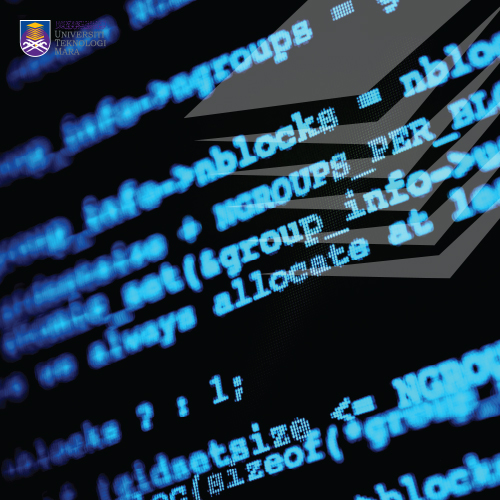 |
This course is designed to provide an understanding of accounting frauds. It delves with various means and methods adopted in committing accounting frauds as well the reasons and consequences of such frauds. The paper sharpens the ability of the students in recognizing the red flags of such frauds and equips them with the techniques in the detection and investigation of them. It also examines some more complex frauds. |
 |
This course provides students with an introduction of the computer concepts, current technologies and the use of application software in the contexts of information technology. |
 |
This course covers the systems concept, data processing technology, systems documentation techniques, infrastructure for E-business, security and control measures in computer-based information systems (CBIS) and AIS applications in business. |
 |
This course covers the phases of systems development life cycle (SDLC) that includes systems planning, analysis, design, evaluation and selection, conversion and implementation, and system maintenance. This course also covers project management software and data analysis using spreadsheet together with basic programming language for data visualization. |
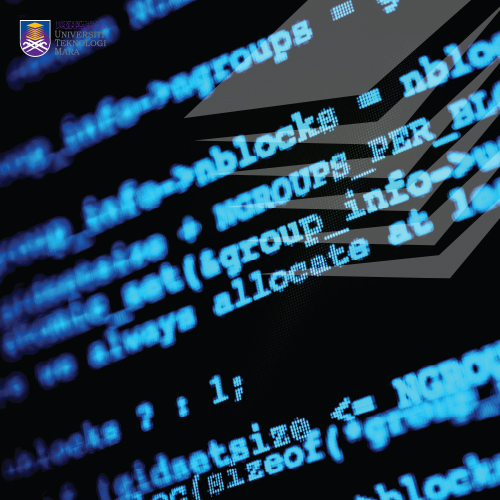 |
This course will provide students with the concept of database management systems and project management. Hands-on training on database and project management software will be emphasized to enable students to utilize appropriate software for office applications. Good work ethics, problem-solving skills and proofreading skills will be highlighted. |
 |
This course is an introduction course in auditing and it introduces students to the concepts and principles of auditing. It also explains the role and responsibilities of public accountants, the rules and regulations in auditing, the preparation of audit drafts, and reporting. The topics covered in the course specifically focus on the concept, process, planning, audit procedures and evidence, and documentation in various audit cycles. |
 |
This course is designed to provide students with an understanding of the roles and responsibilities of internal auditors in evaluating and improving the effectiveness of risk management, control and governance process. The course is focused on what internal auditors need to know in order to conduct an effective and efficient assurance and consulting engagement in helping an organization to accomplish its objectives. Here, in an organization, the internal audit function is the third line of defense that provide the most independent and objective form of assurance. The lecture covers the fundamental phases in the internal audit engagement process, i.e. planning the engagement, performing the engagement, and communicating engagement outcomes. The standards and guidance for the internal auditors is the International Professional Practices Framework (IPPF), the only globally recognized promulgations for the internal audit profession and contains what are considered the essential elements for the delivery of internal audit services. |
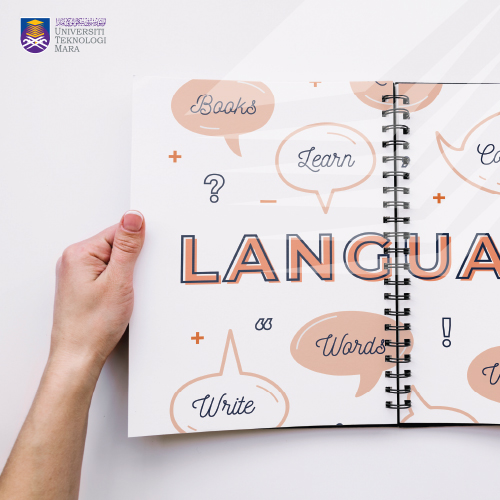 |
This course is designed to provide an overview of the development, implementation and current issues of audit and investigation. It provides an understanding of the concepts and principles in audit and investigation. Topics discussed include auditor’s responsibility, audit planning, control issues, assurance services and impact of technology in audit and investigation process. It also examines the audit and investigation practice and methodology within the statutory and regulatory requirements and behavioral aspects of audit and investigation. |
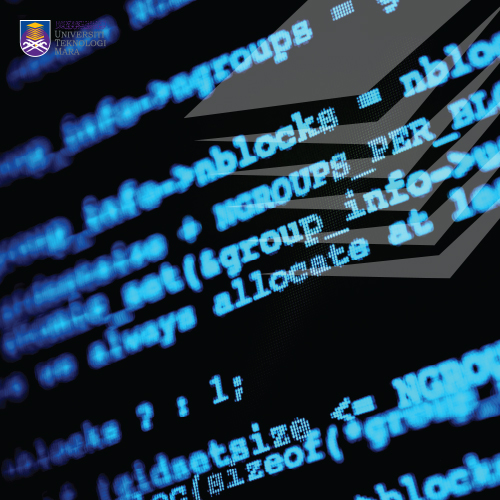 |
This is a specialization course in carrying out research methodology. It is both qualitative and quantitative in nature designed to enhance strategic, analytical and inquisitive approach of applying knowledge acquired in other functional areas of the MBA curriculum. The emphasis therefore is on process without sacrificing contents though it may differ in vigorous treatment as data gathering and analysis. |
 |
Quantitative Research Method Analysis course aims to equip students with statistical tools needed in their academic research. This course will teach students to use both SPSS statistical software and Smart PLS software. The only prerequisite in this course is basic mathematics knowledge and determination to learn.
We believe students need to know how to use the statistical tools and, more importantly, to know the purpose of each statistical tool. Both the know-how and know why will enable students to apply the suitable statistical tools in their research.
We divide this course into two parts. This first part will cover the basic descriptive and inferential statistics covering data preparation, preliminary data analysis, explore relationships between variables and compare groups. The second part will introduce structural equation modelling (SEM) analysis, a popular statistical tool in business management research.
At the end of this course, students should be able to: -
1. Organise data preparation process that includes data entry, data screening and preliminary data analysis.
2. Determine the correct statistical tools in academic research
3. Integrate lifelong learning skills related to statistical tools and software in their academic research. |
 |
The course provides an understanding of the underlying ethical theories and philosophies, and values in individual, organizational, professional and society settings. The focus will be on the practical developments of skills and competence needed through the application of relevant knowledge to deal with ethical issues to enable ethical decision and engage in appropriate conduct. The application of these ethical principles is best discussed within the framework of good practice of corporate governance. |
 |
This course provides detailed knowledge on organizational ethics and governance. The major issues in corporate governance both locally and internationally are useful to be comprehended critically examined and debated. There are a number of important concepts embedded such as the role of family, institutional ownerships, shareholders activism, board composition and performance that are discussed using a variety of learning methods that provide opportunities for critical appraisal of theories and methods to advance debate on ethics and corporate governance in general. |
 |
This course will help students to understand the dynamics of personality development. It also guides students in closing the gap between their current personality and the ideal personality. Students will undergo self-discovery of their existing values, life philosophies, paradigms, perception and relate how these factors can influence their present behavior and future success. Hands-on projects and activities are expected to facilitate better understanding of attitude and group dynamics, and the adoption of effective coping mechanism for students’ sustainable living. Besides, students should also be able to demonstrate positive social image and pleasant appearance with positive ethical conduct. |
 |
This course seeks to apply basic knowledge of customer service and technology fundamentals in business today. It also emphasizes a thorough understanding of customer service industry and explores the knowledge of current trends that lead to the successful implementation of customer service. It places a special emphasis on self-assessment and the mastery of the knowledge to improve individual and corporate productivity. |
 |
This MOOC seeks to enable the learners to focus on the essential fundamentals of service management. It also emphasizes understanding services, which provides a principal context of service fundamentals. The learners will be exploring the basics of the service management understanding, strategy and encounter the concept of designing the service development. Further that, the service management will explore the principles of service quality, process improvement, service operation and globalization which essence the customer perspective of service management. Overall, the subject explores the foundations of service management and how service management relates to the business environment. |
 |
later |
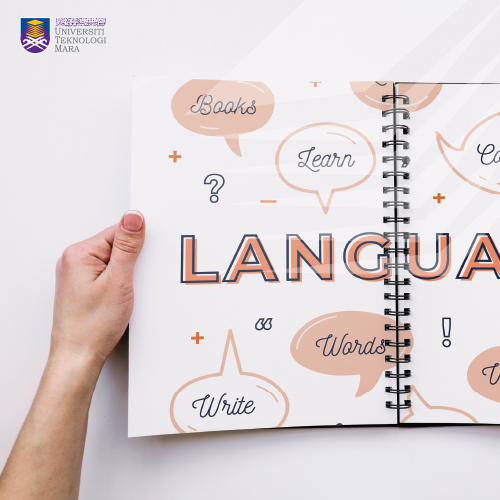 |
This MOOC is recognized as a foundation to identify and address the special challenges that occur in service marketing. Issues encountered in service organizations such as the inability to inventory, difficulty in synchronizing demand and supply, challenges in controlling the performance quality of human interactions have been discussed in this text to help learners and managers understand and address these special challenges of service industry marketing. It also focuses on the development of customer relationships through service, outlining the core concepts and theories in services marketing today. |
 |
This MOOC is introduced students to the field of services marketing, in response to the global transformation of economies to services. The course also emphasized the key concepts of marketing that are applied towards services, such as the marketing mixes, segmentation, and positioning. Apart from that, the knowledge on service delivery, productive capacity and service environments is useful to manage the link between the customer and the service firm. |
 |
This course aims to provide students with an understanding of the importance of customer retention and recovery in customer service. It is also designed to develop the expertise required to come out with the right strategies for customer retention and service recovery. Customer retention and recovery plays a very important role in maintaining good customer relationship with customers for business organizations. Issues such as complaint management, managing customer expectations, and building a culture for service recovery are also covered in this course. |
 |
This MOOC will assist students in comprehending the nature of conflict and its relationship to negotiation, engaging in systems thinking, and recognising the basic characteristics of conflict management, resolution, and avoidance. In addition, they will learn to identify effective negotiation methods for specific situations and individuals. Students will also learn how to utilise their knowledge of conflict and personality theories to comprehend the four basic negotiating styles, resolve conflict, and prevent it. In addition, students will learn how to apply their knowledge of conflict and personality theories to the comprehension of the four basic negotiation styles. |
 |
The course deals with basic concepts of microeconomics and its application in daily decision makings of individuals, business firms and the government. The course also includes the principles and concepts in microeconomics such as national income accounting, macroeconomics problems, policies and international economics. In addition,the course also encompasses the application of concepts and principles in discussing economic issues. |
 |
The goal of this course is to introduce students to economics, which typically divides into two main areas: macroeconomics and microeconomics. Macroeconomics studies the economy as a whole, while microeconomics examines its various components and concentrates on the decisions made by individuals and businesses and their interactions. This course provides a basic understanding of the rules guiding economic agents' behavior and how to apply them to the analysis of economic problems and their resolution.
The fundamental ideas of macroeconomics are also covered in this course, along with topics such as measuring and determining national output and income, employment, and inflation, as well as government budgeting and fiscal policy, money, banking, and monetary policy, international trade, balance of payments, and exchange rates. It also looks at how competitive and environmentally friendly policies can help with macroeconomic issues. |
 |
The subject combines economic theories with the tools of mathematics and statistics in the decision making process. Managerial economics focus on the use of microeconomics principles such as supply and demand, elasticities, resource allocation, diminishing returns, economies of scale and pricing strategies, as important tools of analysis for managerial decision makers. |
 |
This MOOC examines and analyses the theories of international trade, the trade activities of a nation, monetary systems, economic integration, and policies. The area of study also includes discussion on current international economic issues and development. |
 |
This is a one semester introductory course in environmental economics. The course syllabus include environmental issues, problems and policies . Example of local, foreign and international environmental issues are touched, problems and policies are discussed and differentiated. |
 |
This course is designed to expose students to entrepreneurship through hands-on marketing activities purely within the online business environment. It provides the students with the necessary operating skills in utilizing online website builders and social media tools (Facebook, Instagram and Whatsapp) in creating and closing sales. In addition, the essentials of copywriting, placing Google and Facebook paid advertisements, and WhatsApp sales script will provide the necessary skills for students to engage and interactively communicate with real customers in order to secure and fulfil orders. Students are also taught on how to track and analyse advertisement performance using SEO and analytical tools. Managing all the above aspects are vital to ensure the success of an online business start-up in line with the government’s agenda of producing entrepreneurially minded students who create new jobs rather than seek for a job after graduation. |
 |
Behind every successful technology company is a visionary, effective and efficient technopreneur. In this course, students will be exposed to entrepreneurship and apply their entrepreneurial skills in developing an advanced technology that could be a basis for the creation and development of a technology-based venture. This course is designed to inculcate the entrepreneurial skills among science and technology cluster students and promote the development of technology-based entrepreneurship knowledge. The course delivery combines both theoretical and practical aspects of technology entrepreneurship. Theoretical aspect is looking at the important elements in understanding technology entrepreneurship, while practical aspect is engaging the students to develop their technology based idea business blueprint. The course has two key components of face-to-face lectures and practical project based assignments monitored with the course lecturer. |
 |
Welcome to the FINANCIAL ACCOUNTING 2 (FAR160) page . This is a free online learning based program developed by a team of accounting lecturers from Universiti Teknologi MARA (campus of Tapah, Perak) to cater an interactive participation of students all around the university's branches
This course is a continuation of the first course in accounting, i.e. Financial Accounting 1 (FAR110). In this course, students will be taught about business transactions, financial statements, and issues peculiar to the operations of partnership and public corporation.
Topics include formation and changes in the operation of partnership, such as accounting for admission of new partners, withdrawal of old partners and changes in capital and profit and loss sharing ratios and an overview of corporate financial reporting, including the accounting for stock transactions and preparation of financial statements for publication purpose.
After successfully completing this course, students should be able to:
- Prepare the appropriation statement as well as the financial statements of a partnership business.
- Distinguish various types of companies and its formation.
- Explain different types of equity instruments and debts instruments, issuance of equity instruments and debts instruments and their accounting entries.
- Explain the redemption of equity instruments and debts instruments and their accounting entries.
- Prepare financial statements for publication purpose.
- Prepare statement of cash flows. |
 |
This course enables students to learn about post net profit topics such as Earnings Per Share and Income Tax. They will also find that Fair Value Measurement, Share Based Payment, Financial Instruments and Employee Benefits as important technical knowledge to accountants. In terms of reporting, students will be exposed to Interim Reporting and Operating Segment |
 |
This course covers group accounting and reporting at a more advanced level by introducing knowledge to prepare consolidated financial statements from basic to complex group structures. It also deals specifically with disclosure issues pertaining to related party relationships and transactions. |
 |
This is the final course in financial accounting and reporting and it builds on the knowledge and skills introduced in earlier financial accounting and reporting courses. It reinforces the fourth stage capabilities and competency-building in IFRS.
The course is divided into two parts: the first one focusing on accounting theory and conceptual framework and the second part focuses on creative accounting and emerging issues surrounding the accounting profession. While the first
part is akin to “looking backâ€, the second part is akin to “looking forwardâ€. |
 |
This course is designed to enable learners to enhance their knowledge in advanced financial reporting and to stimulate research works in the area of corporate reporting. The course will highlight aspects of financial reporting relating to the application of accounting theories to corporate reporting, issues and development of accounting standards and the application of other issues in corporate reporting and value creation. |
 |
This course is designed to discuss the emerging issues in Islamic accounting, auditing, governance and risk management in the Shariah Compliant institutions (SCIs). The first part of this course focuses on how accounting is being influenced by the Islamic worldview legally and ethically. The second part discusses on emerging issues such as differences in accounting concepts from the conventional perspective, harmonization of the accounting standards and accounting for Islamic investment & securities. The final part of the course focuses on auditing, governance and risk management in SCIs. |
 |
This course requires students to carry out in-depth analysis of companies using information that are publicly available in annual reports, stock analyst reports and reports arising from regulatory and statutory requirements. Students are expected to critically analyze the information provided in the financial statements and apply relevant financial statement analysis tools in evaluating the companies performance and quality of reporting. This course also focuses on earnings management, motivations, techniques, and theories relating to the behavior of managing earnings. Students are required to use real company annual report, market and economic data and other specific industry information for the analysis of company. Journal papers related to the study of earnings management and earnings quality are to be applied for earnings management topic. |
 |
This course is developed to enable students to enhance their knowledge in advance corporate reporting. Issues relating to the application of accounting standards, corporate reporting disclosure, emerging issues and group accounting are highlighted. In addition, this course requires students to carry out in-depth analysis of companies using information that are publicly available in annual reports, stock analyst reports and reports arising from regulatory and statutory requirements. Students are expected to critically analyse the information and apply various analytical tools in evaluating the companies’ performance. |
 |
This course is an introductory course and enables students to understand the basic concept of finance in an organization. Students will define concepts, characteristics, features and analyzing related financial statement. The course will equip students with basic of finance which covers on introduction, financial analysis, planning and forecasting, marketable security, short term and long-term financing. The course will also assist students to comprehend other related finance courses. |
 |
This course enable students to demonstrate knowledge and understanding on the roles and functions of financial institutions in the Malaysian financial system. Also included are the financial operations and services of the banking institutions such as deposit, remittance, credit, and e-banking facilities respectively. |
 |
This course is designed to guide learners on the basics of fundamental analysis of investment in stocks of publicly listed companies. Although the stock market has a lot to offer to investors (i.e; dividends and capital gains), it is always known as one of the most risky investments. Therefore, stock investors are usually knowledgeable and guided in their investment decisions. Investing in a stock market without knowledge can lead to losses.
This course covers four broad chapters of equity investment. It begins with an introduction to the investment environment and the explanation is focused on the perspective of the Malaysian stock market. Next, it emphasizes on the important concepts of investing in common stocks. Since all investments have common characteristics such as the acceptable rate of risk and the potential rate of return, this course also includes the discussion on measuring the investment return and risk. It also covers the aspects of fundamental analysis namely; economy analysis, industry analysis and company analysis. All these concepts are applied to estimate the value of the common stocks. |
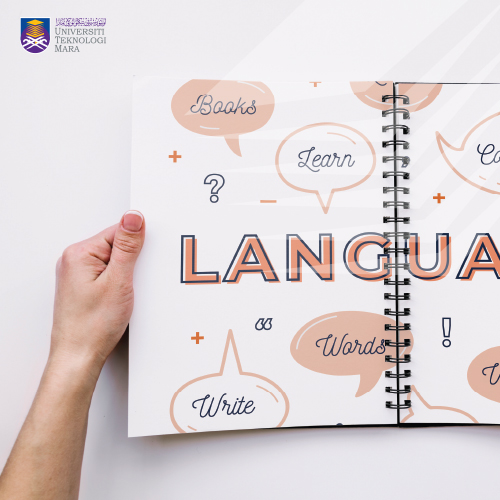 |
The MOOC, “Fundamentals of Personal Financial Planning,” provides a comprehensive understanding of personal finance. It covers personal finance basics, money management tools, tax strategy planning, consumer credit management, asset protection and risk insurance, investment strategies, securing financial future through retirement and estate planning, and enhancing financial surveillance through understanding cyber security. The course is designed to equip learners with the necessary tools and techniques to manage their financial future effectively, offering valuable insights and strategies to help achieve financial goals. |
 |
The course introduces the fundamental aspects and concepts of the securities industry and operation of stock broking firm in Malaysia. |
 |
The topics covered in the course are banking operations, securities for bankers’ advances, bankruptcy, and ethics in banking. |
 |
At the end of the course, students will be able to describe the features of financial markets (money, foreign exchange, capital, derivatives and offshore markets) and the current banking practices of banking institutions in the Malaysian financial system. It also deals with the role of Bank Negara Malaysia, interest rate, banking products and services. |
 |
This course provides and introduction to the field of business analytics, which has been defined as the extensive use of
data i.e. statistical and quantitative analysis, descriptive and predictive and prescriptive models. The use of Excel and
Tableau as an analytics tool to support business analytics is discussed. Moreover, the application of selected data mining
techniques to business decision making situations is also illustrated. Financial modeling is the art of building a model
using excel to depict financial statements and scenario analysis. It builds a structure that integrates various statements
and schedules to enable decision-making. Students actively participate in the delivery of this course through case,
problem-based learning and project presentations. |
 |
The subject develops the “art and science†of corporate decision making by applying corporate financial theory to cases of
financial policy, financial instruments and valuation. In particular, this subject considers corporate investment decisions
(project valuation, acquisition) and decisions that involve financing investments (raising capital, payout policy), while
focusing on related theories of corporate finance. Greater emphasis is given on the determination relevant cash flows from
a project and the impact of financing these projects has on its capital structure. |
 |
Performance management is concerned with reviewing, monitoring, and improving subordinates' performance. It plays a crucial role in minimizing any gap in subordinates' performance and ensuring organizational objectives, short and long term goals are met. The objective of this MOOC is to introduce to learners the definition, process, and development of a performance management system, and how a company can implement a sound performance management system. |
 |
Organization development (OD) involves the process of improving organizational effectiveness and developing personal and organizational change through the use of interventions driven by behavioral and social science knowledge. It is concerned with the planning, formulation, implementation and evaluation of interventions that help organizations and individuals change successfully. |
 |
This MOOC aims to develop learners’ understanding of health economics and its application to the healthcare setting. The demand, supply, and elasticity of healthcare goods and services will be discussed in detail. The hospital and provider behavior, as well as motivation impacts, will be explored together with the various economics of the health system encompassing the health system around the world, and public and private health care financing mechanisms. In addition, the foundation of economic evaluation will be introduced in the MOOC which focuses on the main practical and theoretical issues related to economic evaluation including cost-effectiveness, cost-utility, and cost-benefit analyses. Aided by short videos and blended learning, learners will be able to digest the foundation knowledge of conducting an economic evaluation of various goods and services offered in health care. |
 |
This subject is to expose the students with fundamentals concept, skills and the technique of basic cooking. it attempts to develop students knowledge in relation to the food preparation, terminology and other areas in culinary arts. The course will be based on classical cuisines |
 |
This course is designed to produce competent students with entry-level professional baking skills. By having both practical and theory sessions, it can provide students with a better understanding of the principles in addition to performing skills |
 |
The basic idea of System Theory is that organizations have common characteristics with all other living systems. A
thorough understanding of these characteristics allows us to work with the natural tendencies rather than against them
unnecessarily. Hence, the course provides for a critical analysis of the foodservice management from a system approach
perspective. Students are exposed to the systems approach of foodservice management in order to provide for a sound
management capability. |
 |
This MOOC designed for food enthusiasts, culinary students, and anyone passionate about discovering the rich tapestry of Malaysian flavors, this course offers a deep dive into the unique and diverse culinary landscape of Malaysia. By the end of this MOOC, participants will not only have a deep appreciation for the flavors of Malaysian cuisine but also the skills to recreate these delectable dishes in their own kitchen and used the skills for developing business. |
 |
This course is to enable students to have a basic idea on how kitchen is operated in the foodservice industry. The course
also will become a platform for the student’s to operate a commercial kitchen through a hands-on approach. Further, they
will be exposed to how kitchen is operated based on different service style in a simulated foodservice setting. |
 |
This course provides an understanding of the principles and practices of food marketing. The course will familiarize students with the development of food products, from concept to sale, with an emphasis on the marketing perspective. Through this course, students will be able to build knowledge of food ideas and concept development, product development, marketing, and the food chain. This will give them the opportunity to develop management skills, theoretical skills and behavior change theories relevant to the food marketing sector. |
 |
This course encompasses basic principles of nutrition, its functions and its effect on health, and other nutritional issues in general. Emphasis is being placed on the important role of nutrition in daily diet and meals. |
 |
This course outlines the operational functions of commercial and non-commercial (institutional) foodservices based on the
systems approach. Additionally, students will be exposed to various trends, challenges and technology commonly used in
the four main types of foodservice systems which consists of the conventional system, ready-prepared system,
commissary system and assembly/serve system. |
 |
Foodservice system |
 |
This is an introductory course to provide fundamentals of human nutrition to enable the students to understand and think critically about the complex interrelationships between food, nutrition and health. The course encompasses basic principles of nutrition, including all the nutrients, their benefits and pathway inside the body once consumed. Students will also learn about the sources of these nutrients, their deficiency and toxicity symptoms, as well as current topics and issues related to nutrition. |
 |
This course provides the students with theory and experience in the production of pastry and bakery products and enhance the development of competency-based skills while emphasizing entrepreneurship and creativity. |
 |
This course covers menu planning, types of menus, menu writing, menu profitability used for various types of foodservice organizations. |
 |
In this course, the students will be provided with an overview of the foodservice industry, growth and future prospect. Discussion will focus on management and operation issues surrounding the various types of foodservice establishments in Malaysia and worldwide. Students are encouraged to conduct a mini forum or seminar to invite guest speakers or experts from the foodservice industry to share their views and experiences in the running of the business. Field trips to some foodservice organizations will also provide real insights to the decision making strategies and activities carried out by some of the foodservice establishments. |
 |
The course will emphasize on the food quality elements and the latest trends in the industry to assess food quality. Additionally, it provides students the ability to understand and analyze the quality assessment of advanced food quality. Quality standards such as total quality menagement, Hazard analysis critical control point, Halal and international organizations of standards will be deliberated and discussed in this course.
Under this course, there are TWO instructors which are
Prof Madya Dr Chemah Tamby Chik
Prof Madya Ts Dr Sabaianah Bachok
Our detail contact and profiles can be seen in the Course Content |
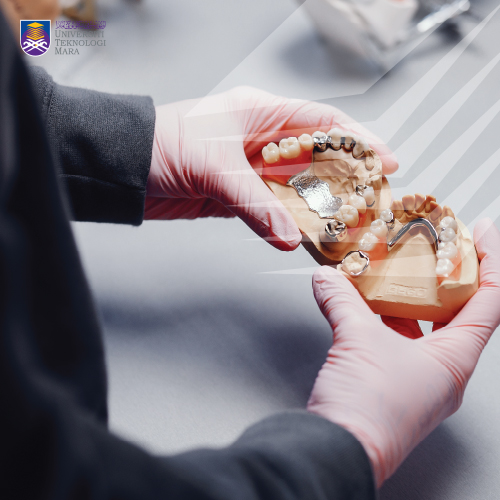 |
This course will prepare students in the product development process using the research and development team approach in the food industry. Students will be required to access resources in a variety of ways. Students are required to acquire the knowledge necessary to successfully complete their product development. Attention are given to three major components of food product development; (i) development and evaluation of food product concept, (ii) development of a prototype food product and (iii) market evaluation of the prototype product. |
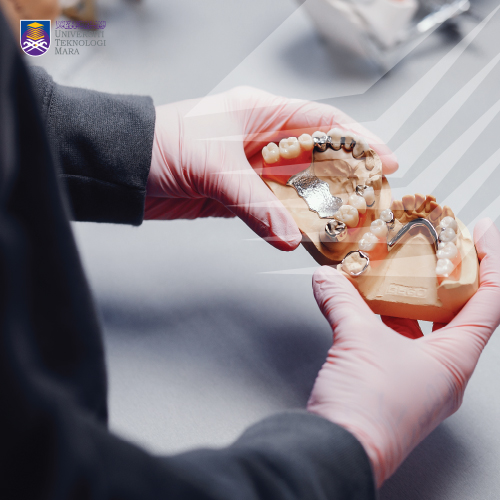 |
The course is designed towards developing a managerial skills needed to manage housekeeping operations particularly in rooms, public areas, linen and laundry. |
 |
Students are exposed to the actual practical working condition in restaurants, emphasizes all aspects of good service and product knowledge together with essential communication, personal organization and technical skills. It also involves service procedures for various menu items and from the guest arrival till their departure. This subject also defines catering in the service industry and introduces to the different forms of commercial and institutional catering. It provides students the opportunity to understand the theoretical knowledge of restaurant premises, equipment, menu preparation, job function of each staff members of restaurant, several controlling documents in the operating system of the restaurant. |
 |
This course provides an understanding of the service attributes and characteristics, service segments and concepts of service delivery system, quality standards, training and concept of globalization for service sectors. The focus is on developing and applying theories and strategies for situational problems. |
 |
The course is designed towards highlighting the skills required for successful, lifelong professional development.
Specifically, students will be exposed on various strategies and methodologies that can assist in the acquisition of
professional development skills to enhance their values as a quality human capital especially in hospitality industry. |
 |
This introductory course provides student with the scope and complexity of the hospitality industry by exploring the relationships of lodging, tourism, food and beverage, culinary arts and other sub industries. It introduces key hospitality management definitions and the opportunity available to achieve a successful hospitality career. It encompasses the study of organization, functions, operations and management of the hospitality industry, safety, security and environmental practices. |
 |
This course is designed for those who are enthusiastic about doing management research in order to better understand the complexity of today’s hospitality business environment.
Managers need good information to reduce risk in their management decision making. At the same time, research can assist management to ask the right strategic questions.Hence, knowledge and understanding of our social and business environment have become the basis of today’s managerial decision-making.
This introductory course provides a holistic and integrated approach to hospitality management research processes. This course covers a wide range of approaches to management research and their philosophical bases to be readily applicable to managerial problem solving. |
 |
This course is designed to apply scientific information on baking knowledge to be acquired by students. It aims to enhance student comprehension and analysis of products prepared from the scientific perspective. The knowledge gained on ingredient characteristics and interactions would be able to facilitate troubleshooting and improve skills in the bakeshop |
 |
The course will prepare students with fundamental knowledge of the tourism industry. This includes knowledge in tourism components and organizations, motivations, planning, and development of the destination. Students will be exposed to the significance of tourism impact on the economy, social and environment as well as the importance of planning for sustainable tourism development. |
 |
This course introduces the foundations of business etiquette and customer service skills.
Students will be exposed to business meetings, communication, and etiquette within the
Malaysian context. Students will also be exposed to customer service in terms of dealing
with customers in today’s competitive business environment. |
 |
This course introduces to the students the type of transportation used in the travel and tourism industry. Travel and tourism involve the movement of tourist from one place to another place. Hence, this course discusses the nature of ground, water, and air transportation. It also discusses the operation and marketing, case study of human and environmental impact of tourist transport, and the future of transportation. |
 |
This course is designed to provide exposure to the students in the travel and tourism industry. Students will be located in various travel and tourism organizations throughout Malaysia ranges from travel agencies, tour operators, airlines, event organizations, theme parks, nature parks, cultural organizations, resorts, government agencies, and other organizations related to the travel and tourism industry. Students will be attached to various departments within the organization. Throughout the practical training period, students will be supervised by an appointed officer in the organization and supervision will be also conducted by the faculty members to ensure training is within the academic requirement. Students are expected to gain maximum experience from the organization purposely to prepare students' capability both in theory and skill management. |
 |
This course introduces concepts and theories on information technology, technology adoption, diffusion of innovation, usability, social media and social network and how they influence tourism/hospitality industry. In addition, this course exposes students to issues related to the use of technology for knowledge management, benchmarking, inter-organizational data sharing, and collaboration among organizations in the tourism industries. Specifically, this course provides an insight into tourism industry through the application of new emerging technologies. It covers both the strategies and concepts of e-commerce and the technological infrastructure requirements that are applicable in tourism industry. By the end of this course students will be able to understand factors that influence technology adoption/use in tourism. Students will learn to apply the newly acquired theoretical knowledge to practical problems through case studies. They will also have acquired the necessary knowledge and skills to develop technology management strategies that can help tourism organizations use emerging technologies more effectively. |
 |
This course is designed to provide students to a valid and practical means of planning destination to meet the collective needs of tourists, host communities, government, and other stakeholders. The preparation of development plans and identification of potential products/resources is vital to the dynamic nature of tourism and the factors that influence its development. Thus, it will develop analytical thinking in order to evaluate tourism destination according to current and future needs. |
 |
Pervasiveness that occurs in the travel industry demands a more comprehensive study of leisure behavior in all its
complexity. The continued growth of the tourism industry depends on a closer and more attentive scrutiny of group travel
needs as well as how it influences leisure and travel patterns of individuals. This subject will therefore identify the
elements influencing tourist behavior, understanding and managing tourist behavior and the process involved in making
decisions among the tourist. This subject also will explain the important of determining the current travel behaviour of international and domestic tourists on organization's marketing strategies planning. |
 |
The course is designed to prepare students to manage the dynamic, constantly changing working environment with required knowledge and skills. Specifically, it provides the students with awareness of skillful performance of personal, interpersonal and intrapersonal skills required as foundation of effective management practices in today's travel and tourism industry. |
 |
This course introduces the concepts of Islam and tourism to further enhance greater understanding of tourism businesses from the Islamic perspectives. The students will be given the basic knowledge of the Islamic civilization, Islamic world, Islamic travel, Islamic law and tourism, and how to design and develop travel businesses targeted to the Global Islamic market |
 |
This course exposes the students to all the importance of international business in a global marketplace. Students will learn many of the central issues in international trade and investment, international business strategy and structure, and international business operations arise out of national differences in political economy and culture. It would be an exciting and interesting insights for students to understand the elements when conducting international business. |
 |
This course exposes the students to the concept of geography, the physical landscapes and the population landscapes, dynamics and activities. The students will examine the ten different regions and its sub-regions individually; examine its diversities and how these regions deal with the dynamic nature of the global business environment and current events. This course coverage will enhance the students? understanding that regions are different in term of their culture and history, environment, economic growth, political institutions and its local and international policies. Important issues regarding changes in political, cultural, legal, environmental, economic, and governmental forces that interact with international business management will be emphasized. |
 |
The course aims to recognize the basic concepts and methods related to web archiving. Giving understanding on the web archiving process and its functionalities. Students also need to able on discussing the requirements and problems arising during web archiving. Recognize simple archiving strategies using some web archiving approaches. |
 |
This course is an overview of information resources and the skills required to use them effectively. Through lectures, hands-on, assignments, and other methods, students learn how to use library resources, such as electronic indexes and databases, online services as well as develop strategies for conducting research. |
 |
This course is designed to provide students with the basic knowledge of elementary computer and applications systems. Students will acquire basic skills in the use of personal computers and software applicable to the information management and delivery of services in a wide variety of fields especially in Library Management. Topics include the use of Information and Communication Technology (ICT) and popular productivity software such as spreadsheet, word processing and presentation graphics. |
 |
This course is an introduction to the field of library and information science and records management. Covers all aspects from historical perspective to the digital age of library and information management development in Malaysia. Information management concerns a cycle of organizational activity: the acquisition of information from one or more sources, the custodianship and the distribution of that information to those who need it, and its ultimate disposal through archiving or deletion. This course offers a self-learning, owning your learning by own pace to ensure professional development is enrich through the learning process. This also proven to get the most learning experience and engagement from our experienced and experts instructors. |
 |
This course engages students in discussing the value and significance of information as economic good in information industry. It raises students? awareness as information entrepreneurs that have a skill of entrepreneurial leadership, innovate information products and commercialize it ethically. |
 |
Welcome to Organizing Information!
We hope you will have a wonderful time and learn a lot about organizing information
Course Information
This course introduces students to the concept of organization of information, and its role in human endevors. The importance value of knowledge and information to individuals, organizations, and communities will be highlighted to students.
At the end of the course, students should be able to:
• Explain the concept of organization of information.
• Recognize the importance of information organization concepts that affect how information must be retrieved.
• Identify administrative issues affecting organization of information.
• Apply the role of technical standards in organizing various information formats.
This course should be completed within
14 weeks |
 |
This is a basic course whereby students learn the basic concepts of cataloging which comprises the foundation of descriptive and subject cataloging. Students will also learn how to do copy cataloging using online bibliographic databases and convert the bibliographic records in descriptive catalog to computerized format using Machine Readable Cataloging (MARC21) and Resource Description and Access (RDA) standard. |
 |
This course aims to provide students with the essential skills of interpersonal, small groups, emphasizing the areas of human communication skills, and listening. Through this course student are able to develop effective presentation skills and apply the human communication skills to the real world and to the workplace. |
 |
Get ready to dive into the digital preservation with the 'Digital Preservation in Library Environment MOOC'. This course provides an overview of preservation of library materials. This MOOC covers knowledge about threats to library materials and various preventive measures to ensure the long-term existence of library materials for future needs. A basic introduction to the preservation and conservation of digital objects, and the management of preservation efforts, including preservation assessment and decision-making; and the standards and professional ethics that support them. Students also will be shown various examples to enhance their understanding and knowledge in the handling of library materials. Elevate your expertise and take charge of digital preservation with this engaging and practical MOOC. |
 |
This course attempts to prepare students to understand and do reference and information work in libraries and other information arenas. Includes history and varieties of reference services, user populations, instruction, ethics, access issues, the reference interview, search strategies, evaluation of services, and the organization, selection, evaluation, and use of major information resources, both print and electronic. Teaching methodology involves face-to-face lectures, and tutorials. Student assessment includes group assignments, class test and final exam. |
 |
Introduces students to the various sources, services and trends of information seeking behavior in the areas of social sciences. Students are required to choose a topic within the field and complete a subject bibliography or resource guide to the information sources of the chosen topic. |
 |
This course discusses the planning and design of libraries and information centers. It encompasses decision processes and technical aspects. Examples are preparing a proposal to build up the information center and executive summaries, interactions among parties involved, regulations, standards and specifications. Teaching methodology for this course is lectures, discussions, tutorial, presentation and visit to related organizations and institutions. |
 |
Describe the objective of a filing system. Apply a range of option for the classification and coding of filing system. Follow
processes involved with creating and controlling files. Employ processes of maintaining and using files. Propose general
principle of handling individual documents that make up files. |
 |
This course provides students with the knowledge and technical skills in carrying out an oral history program. This includes the planning for oral history project, conduct interviews, process interview transcripts, disseminate information on oral history and manage the preservation of oral history collection. |
 |
This course is intended to prepare students in understanding the concept and principles of records management in a
business environment. This course guided students to manage business records as a strategic resource to an
organization. This course also deals with the concepts, dimensions, strategies and challenges with the provision of quality
customer services in business organizations. Finally, this course explains the various actions that should be taken by
organizations for protecting vital records from disasters for business continuity. |
 |
The course outlines a study of the lifecycles management of electronic records; the roles of records managers and
archivists in the life cycle process; the technical aspects of electronic records; creation and identification of electronic
records; control and use of electronic records; appraisal and retention of electronic records; disposition and archival
management of electronic records and legal and social implication of electronic records. |
 |
This course looks into the production of audiovisual materials, management and the maintenance of these materials. It provides students with the knowledge of managing and providing services of audiovisual resources and at the same time to learn the archiving techniques and preservation of such materials. |
 |
This course exposes students to essential concepts of World Wide Web that enable web applications for managing online information. It applies server-side and client-side scripting in building a secure database-driven web application for information storage, retrieval and interactive access of information. It also introduces web application developments using integrated development environment (IDE) and applying standard metadata elements for describing resources in supporting information storage, retrieval and dissemination. |
 |
This subject introduces the nature and magnitude of risk in life and the business environment. It also helps the students in becoming more familiar with the terms and usage of Insurance and Risk Management |
 |
To develop students' understanding on the principles and practices of Fire and Consequential Loss Insurance. |
 |
This course provides a comprehensive understanding on various types of cover available in transportation, underwriting practice, claim procedures, and the role of association related to motor, marine and aviation insurance business. |
 |
This subject is designed for students to understand the diverse classes of property insurances, ranging from insurance against crimes, property, and person including various classes of Engineering Insurance. More specifically, the syllabus focuses on the covers, exclusions, conditions, warranties and underwriting of various classes of property insurance. |
 |
This course introduces the concept of financial planning and wealth management in Islam. It covers a theoretical and practical approach both in conventional and Islamic perspectives. The course highlights the process of wealth creations, accumulations, protections and distributions in Islam. Proper planning and management of wealth allows effective and efficient decision making for Muslims in order to ensure the continuous growth of Muslim’s equities. |
 |
This course introduces the students to the Islamic retail and corporate banking products offered by Islamic banks as well as the current issues that relevant to Islamic banking. The student will also be equipped with the knowledge on the types of Shariah concepts used for retail and corporate products in Islamic trade. |
 |
This course provides an understanding of the legal and regulatory aspects of Islamic banking and finance. Topics will be covered include the laws and regulations which govern Islamic banking business, Takaful business as well as Islamic Capital Market. |
 |
Learn how to search online database subscribe by UiTM Library and gain benefit from it. |
 |
This course covers the concepts and applications of several related topics that the financial manager may require at the corporate level. The introduction provide the overview of financial and stakeholders objectives. The basic concepts of return and risk, capital asset pricing model, efficient market hypothesis, cost of capital, capital structure, dividend policy and foreign exchange risk and foreign exchange rate in international finance studied in more detail, refined and applied in various financial situations. This course will require a fair amount of integration of the previous course to develop knowledge and skills expected of a financial manager. |
 |
The course covers the importance of risks, the different types and sources of risks, risk management strategy, risk management cycle, risk management roles and responsibilities, and internal control for risk management. |
 |
This course is designed to provide an advanced discussion on the practical aspect of corporate finance and how it adds value to the firm. The course highlights the role of financial strategy within the overall corporate strategy of the firm. It considers issues like which components of financial strategies are suitable for each stage of the company's life cycle, the firm's policies regarding dividends and stock repurchase, as well as mergers, acquisitions, and financial restructuring. Other issues like international finance are also being examined in the course. Finally, it discusses some of the theoretical and empirical literature on corporate financial policies and strategies. |
 |
The scope of the course covers the key elements in designing and managing the organization’s financial strategy, in the context of contributing to achieving the organization’s objectives.
The features and implications of the full range of major financing instruments are covered. A broad range of types of investment decisions is also covered and it is recognized throughout that such decisions need to take account of broader strategic issues as well the financial analysis. |
 |
This course provides an overview of the Design Thinking Process for generating innovative entrepreneurship idea. After an appreciation of the concept of Design Thinking Process in entrepreneurship, students will go for a journey of creating innovative ideas. Change makers mindset shed light on understanding the needs and wants of user and defining the real problem encountered by the users through several methods includes observation, interview and engaging with the end users. Next, the students will explore the solution in the ideate stage to find the most innovative idea that solve the users problem. After generating the idea, a possible and tangible solution is created; prototyped and tested. |
 |
This course introduces the various functions of management such as planning, organizing, leading and controlling. It will
also expose students to various industrial management concepts such as Industrial Relations, Occupational Safety and
Health, Production and Quality Management |
 |
This course introduces the various functions of management such as planning, organizing, leading and controlling. The subject will expose students to various management concept and theories such as motivation, communication, quality management and Islamic management perspective. |
 |
This course introduces the above components to help students understand various aspects of business communication and to acquire the skills of good business communication as demanded by employers. The course stresses on correct language and appropriate business attitude in speaking and writing. The course presents a picture of communication in the business world. |
 |
This course aims to assist students to adapt to the demands of university education and careers in the 21st century by
allowing students to become familiar with the use of critical and creative thinking skills in daily life. |
 |
This MOOC is designed to familiarise the audience with various behavioural aspects within organisations and to allow their implementation in the business world. Through the study of Organisational Behaviour, the audience will get a profound grasp of how individuals and groups function within a structured context, sharpening critical interpersonal skills required for effective teamwork. Furthermore, by exploring this MOOC, the audience will have the ability to navigate complicated workplace interactions, fostering adaptation and resilience in professional settings.
Covering nine topics, this MOOC is expected to expose the audience to perceptions at the workplace, attitudes and personalities, stress management, motivation and leadership, and many more interesting organisational behaviour-related topics. |
 |
The course is designed to equip students with knowledge and abilities in word processing, spreadsheet, presentation, and website applications. In line with the Industrial Revolution (IR) 4.0, students will also be exposed to basic cloud computing and big data analytics. The focuses of the course are on the integration and hands-on training application to enable students to generate documents, spreadsheets, presentation slides, and website professionally. |
 |
This course will expose the students to basic management knowledge and managerial skills, focusing on functions of management such as planning, organizing, leading, and controlling. This course will enhance students' understanding of management practices, challenges and changes in the local and global markets. |
 |
This course will expose the students to basic management knowledge and managerial skills, focusing on functions of
management such as planning, organizing, leading, and controlling. This course will enhance students understanding of
management practices, challenges, and changes in the local and global markets. |
 |
Organizational behavior (OB) is an academic study of how people act within groups. The course would allow for people in the organization to work together to achieve the organizations objective.
Besides, this course would assist students or attendees to understand the area of research dedicated to improve job effectiveness, job performance, employees engagement and commitment, the impact of leadership, the impact of communication effectiveness, the side effect and the opportunities of conflicts and many more.
Understanding the concept of Organizational Behavior also would allow a person to prepare himself or herself for the managerial role in an organization. And with the grasp of OB, leaders are expected to lead the team or organizational members to its optimum level. |
 |
There are dramatic changes that have taken place in many organizations over the decades. Thus, the Behavior of individual employee as well as groups within this organization has been a major concern recently as they created an impact on organization's productivity and profitability. Hence, this course is catered to address all the important issues pertaining to organisational behavior hoping that the exposure it gives will help students as well as practitioners to manage their subordinates and organisations effectively |
 |
The course seeks to impart a holistic approach to personal enhancement, incorporating the components of personal success, namely; positive intrapersonal skills, good interpersonal skills, ethics, and leadership skills. |
 |
Organizational behavior (OB) and Leadership is an academic study of how people act within groups. The course would allow for people in the organization to work together to achieve the organizations objective.
This course would allow students or attendees to understand the area of research dedicated to improve job effectiveness, job performance, employees engagement and commitment, the impact of leadership, the impact of communication effectiveness, the side effect and the opportunities of conflicts and many more.
Therefore, in order to ensure that the organization is able to operate effectively and to its optimum, understanding the behavior of people is indeed an added advantage. |
 |
The course is designed to generate an academic research paper for degree's academic research in Finance and Economics. The first part of the course focuses on how to organize an academic research paper, including developing the research questions, reviewing and synthesizing prior research and writing, and understanding the elements of an academic research paper. Students will work in developing an appropriate and feasible research
design, considering the distinctions of alternative methods. Students will draft chapters and eventually a full academic research paper with ongoing review by the course lecturer. |
 |
Business Analytics introduces the fundamental concepts, methods and tools needed by business leaders to transform business information and business data into useful insight to solve challenges in the ever changing and challenging global business environment. This course will introduce some widely used techniques and software such as Excel, XL Miner, Structured Query Language (SQL) and R to produce descriptive, prescriptive and predictive business analytic models. This course would end with introduction to the methods in presenting business analytics results. |
 |
This course offers an in-depth analysis of the behaviour of individuals and groups within organisations. This course covers the impact of various management methods and leadership styles on employee satisfaction, motivation, organisational efficiency, productivity, and profitability. The topics covered various leadership disciplines, group dynamics, and talent management practice. Students will be taught that in the face of rapid change and growing complexity, both organisations and society require distinct types of leadership in the present compared to the past. Utilising their acquired leadership concepts and skills, students will apply their personal experiences to (a) understand different forms of leadership; (b) understand the diverse aspects of talent management; and (c) develop a specialised knowledge base and skills in leadership to effectively handle talent management issues. |
 |
This course examines the fundamental, practical, managerial approach to marketing. It gives the student a comprehensive, innovative, managerial and practical introduction to marketing. |
 |
In today's business climate, this course introduces the fundamentals of customer service abilities. Students will be exposed to customer service environments, building and maintaining long-term relationships with clients, dealing with challenging clients, and utilising a variety of technological advances in the highly competitive customer service sector of today. |
 |
This MOOC introduces the concepts and practices of marketing. It provides students with a real business situations. Topic include values creation, strategic planning, marketing environment, competitive analysis, consumer and organizational behavior, market segmentation, targeting, positioning and managing of the marketing mix. it also emphasizes on the aspects of ethics and social responsibility in marketing. |
 |
This course designed to provide students with a framework for understanding the dynamics of marketing within the leisure industry. The focal point of this course is on understanding the development and application of marketing strategies for leisure businesses. |
 |
This course introduces the concepts of brand management in practice of other marketing programs. This includes the understanding of brand terminology and activities of brand management such as brand values and positioning, the implementation of brand marketing programs and measurement of brand performance. Thus, it exposes how brands are managed as strategic asset. The course also represents students to the challenges commonly faced by brand managers. |
 |
This course will introduce the various promotional tools available to marketers. Because of the comprehensiveness of this process, the term marketing communication is used instead. All of the marketing communication program must be integrated so as the objective of enhancing the brand equity is achieved. |
 |
This MOOC will help learners understand the importance of global marketing and the ways to develop strategies to be competitive in the global markets. Learners will also analyze the various difficulties and challenges in today's global marketing environment to gauge the effect of these environments on global marketing decisions. |
 |
This course provides students with a basic understanding of brand architecture and its roles in development of brand
equity. The course emphasizes on comprehensive theoretical foundation with techniques and practical insights for making
better brand decision. Thus, improving profitability of the brand. |
 |
Office Administration I is an introductory course to provide the students with a firm foundation of knowledge, skills and procedures for success in the workplace in order to perform executive officers functions in an office. It will give an overview of concepts (macro level) pertaining to an electronic office. Major emphasis will be placed on the topics on communication, time and management techniques and other related functions the office environment, time management, workstation management, effective telephone communications and processing mail and the impact of technical changes to the executive officers professions. |
 |
This course gives a general understanding on how people relate to each other and to expose students to the main theories and the basic principles of interpersonal communication. It teaches the various contexts of interpersonal communication involving other people in the environment. |
 |
The Office Administration course teaches students the basic knowledge, skills, and procedures needed to work in an office and perform executive functions. The course covers topics related to electronic offices at a high level and aims to help students support executives in managing the office efficiently. |
 |
This introductory level course concerns theories and practices that study the complex relationships between people and organizations in which they work. Emphasis will be on understanding how people behave in organizations and how to manage their behaviors if individuals and organizations are to succeed. |
 |
This course is an overview of information resources and the skills required to develop a research effectively. Through lectures, hands-on, assignments, and other methods, students learn to understand the need to conduct a research by understanding the world of knowledge, know the variety of information sources available, how to locate and search the needed information and use all available resources, printed and online services to develop strategies in conducting a good research. |
 |
This course is designed for administrative office apprentice. It will provide students with a broad understanding and appreciation of the fundamentals effective management needed to administer the office functions. Students will also be introduced to personnel work, with emphasis on the role of people and ergonomic environment. The principles, activities and procedures in solving office problems will be emphasized throughout the course. |
 |
This course involves the study of concepts relating to the operations functions in both manufacturing and service organizations. The operations process is responsible for planning, organizing, and controlling resources in order to efficiently and effectively produce goods and services so as to meet the goals of an organization. |
 |
This course is designed to introduce the students with the concepts of accounting and financial management in the public sector. It also aims to expose the students with the current practices of public sector accounting, together with the underlying legal provision, rules and procedures. |
 |
This course is designed to lead students to an interesting and stimulating discussion in a seminar-based class with emphasis on fraud and corruption in the public sector. It will provide an understanding of the fundamentals underlying the function and features of public sector accounting. It will expose students to various thoughts in forensic accounting in the public sector in a seminar-based class approach in order to provide them with in-depth knowledge and potential experience relating to corruption and fraudulent activities in the public sector. |
 |
This course aims to equip students with the fundamental knowledge and competencies pertaining to research and writing. Students are trained to be conversant with the underlying nature and meaning of scientific research and how such fundamental principles can be operationalized, in addressing relevant accounting-related issues in an objective manner. This course specifically aims to guide students towards better understanding of research philosophy, methods and processes in order to assist them in conducting research. This will be accomplished through an interactive lecture-discussion format augmented by individual project activities. There will be substantial emphasis on learning to access and utilize the research literature, to analyze the results of published research, to design research framework, and to translate research into practical applications in the professional context. |
 |
This course is cater for semester 1 students who embark in Diploma and Degree that enables them to learn the secret to be successful as a student. The module is set up to facilitate the students to strive great results in their examinations and be an outstanding student among fellow friends |
 |
This course introduces students on the accounting for property, plant and equipment according to MFRS116. Measurement and recognition of property, plant and equipment will be discussed with examples and video presentation. |
 |
This course focus on introductory and intermediate level of cost accounting and management accounting at operational level. It introduces to learners the basic concepts, terminologies, principles and methods of cost and management accounting starting from the introduction to cost elements to the basic costing methods in arriving at the cost of products produce using job, batch and process costing. Further, this course discusses how changes in costs (both variable and fixed) and sales volume affect a company's profit in Marginal and Absorption Costing and Cost Volume Profit Analysis. To assist learners to make a simple investment decision, a Capital Budgeting topic is discussed. |
 |
Kursus ini membincangkan berkenaan 6 sub topic iaitu hibah, wasiat, takadul, Amanah raya, simpanan patuh syariah dan pelaburan patuh syariah. Kursus ini juga menerangkan secara terperinci jenis, proses dan isu-isu semasa berkenaan setiap sub topic tersebut. |
 |
Kursus ini membincangkan berkenaan 7 sub topik yang memberikan maklumat kepada usahawan berkaitan pengurusan kewangan, cabaran keusahawanan, serta e-keusahawanan. Selain itu, bakat keusahawanan dalam perspektif seni dan langkah-langkah untuk menjadi usahawan muslim yang berjaya juga turut dibincangkan. Kursus ini juga menerangkan secara terperinci sistem sokongan usahawan untuk membantu usahawan mendapatkan informasi berkaitan bantuan kewangan dan sebagainya. |
 |
This course allows students to familiarize themselves with STATA as an alternative software to perform quantitative analysis. In this course, students will explore the STATA interface and attempt the frequently used commands in STATA. Students will also learn to import dataset into STATA, to obtain summary statistics of the data, to run Ordinary Least Square (OLS) regression and to interpret its key results, and to perform basic diagnostics tests for the OLS estimation. Several diagnostics tests are discussed such as tests for heteroskedasticity, serial correlation, multicollinearity, model misspecification, and normality of the residuals. Via a specially designed series of activities, audience will get a chance of building their own Do file, an important feature of STATA.
This course is suitable for final year undergraduate students especially when completing their research for final year project. Similarly, this course can be a refresher for postgraduate students using quantitative analysis methods before embarking their postgraduate research study. |
 |
This course introduces the audience to the concept of panel data i.e. a dataset where observations are pooled across multiple cross-sectional units and time periods. It familiarizes the audience with the sources of variation in panel data, the concept of unobserved heterogeneity prevalent in pooled datasets, and how it violates the Classical Linear Regression Model (CLRM). The course also covers the advantages and disadvantages of panel data.
Subsequently, it discusses static panel data models, namely Pooled OLS, Fixed effects, and Random effects, as well as the commands to perform these model estimations in Stata. It explains the assumptions behind these models, the procedure for selecting the best model, and the post-estimation diagnostic tests.
This course is suitable for final-year undergraduate students, especially those completing research for their final year projects, or postgraduate students conducting quantitative research using panel data. |
 |
This course is designed to provide exposure as well as to familiarise students with all aspects of company taxation including determining basis period, computation of industrial building allowance and agricultural allowances. This course aims to provide students with the basic application of withholding tax and RPGT. It is also designed to develop the student’s skill in computing partner’s taxable income from partnership business as well as sales and services tax. |
 |
This course is designed to equip students with a sound knowledge of principles and objectives of taxation, the Malaysian tax system and contemporary tax issues. It covers tax ideology, principles of taxation and tax policies, Malaysian tax framework, critical analysis of the development in the Malaysian tax system, budget updates and its implication, impact of Information communication technology (ICT), cross border taxation, impacts of globalisation on taxation and current tax issues. |
 |
The subject will discuss on the importance of business logistics in different industries. Students will be exposed to the significance of logistics in maximizing customer satisfaction and lowering the total cost. Students will gain knowledge on the sub-functions of logistics and the relationship from one function to another. Students will learn the management aspects of distribution and the role of government in assisting organizations to achieve a smooth flow of goods from the point of origin to the point of consumption. The students will also be exposed to the current issues in logistics, both domestically and internationally. |
 |
This course explores the emerging trends of digital working environment via crowdsourcing. Students will be exposed to
crowdsourcing concept, business model and its ecosystem. They will have the ability to apply their knowledge and skills
to complete crowdsourcing tasks from crowdsourcing platforms and generate income. This course will covers the
concepts of digital workforce, crowdsourcing, local and international crowdsourcing programme and platforms, career
management, marketing and opportunities and challenges of crowdsourcing. The teaching and learning process will take
place through lecture and lab activities. Students will be assessed individually for their ability to obtain jobs, completing the
jobs, generating income and establish their portfolio in the crowdsourcing platforms. This course not only provides
awareness but also the know-how and the technical skill for the students to participate in the crowdsourcing industry as a
crowd worker or job provider |



































































































































































